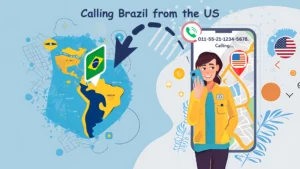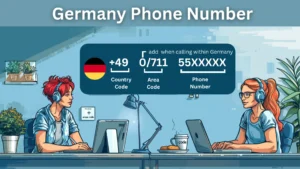Introduction
Calls to Cuba from the United States are expensive mainly due to the economic sanctions and trade embargo imposed on Cuba by the U.S. government. Since the early 1960s, restrictions have been in place limiting commercial and financial transactions between the two countries. This has made direct communication links difficult to establish.
Most calls from the U.S. to Cuba have to be routed through a third country before reaching Cuba. This indirect routing, along with the limited competition among telecom carriers, leads to inflated costs. Typically the calls have to go through international waters or airspace before entering Why Calls to Cuba are so Expensive which adds to the expense.
In addition, the state-run telephone monopoly in Cuba charges high connection fees which are passed onto consumers. These per-minute charges levied by the Cuban phone company account for a major portion of the elevated pricing.
Due to the extra routing and limited options, calls can cost over $2 per minute from the U.S. to Cuba. But prices have dropped in recent years as more U.S. providers obtain licenses to serve Cuba directly. The regulatory landscape remains complex, but loosening restrictions continue to make calling Cuba more affordable.
Explain Why Calls to Cuba are so Expensive are significantly more expensive than calls to other countries.
Calls from the United States to Why Calls to Cuba are so Expensive cost exponentially more than calls to most other nations due to decades of economic sanctions imposed on the communist country. The Cuban Assets Control Regulations were enacted in 1963, essentially cutting off Cuba from the American economy and financial system.
As a result, direct telecommunication links between the two countries are prohibited. Calls must be routed through third countries before reaching Cuba, adding additional fees and driving up prices. Most calls transit through international waters and airspace which comes with extra routing charges that don’t apply when calling neighbouring nations.
The lack of competition is another factor. Only a handful of American telecom companies have been approved to provide direct service to Why Calls to Cuba are so Expensive. This oligopoly enables the providers to charge higher rates knowing customers have few alternatives.
Furthermore, Cuba’s state-run phone company charges unusually high per-minute fees that get passed on to the consumer. Rates to call Cuba can be up to 10 times more than calling Canada or Mexico.
If sanctions were lifted, rates would likely drop significantly. But for now, the regulatory hurdles and indirect routing necessary to call Cuba will continue to make prices exorbitant compared to other countries.
Give some examples of the cost of calling Cuba from different countries.
The price of calling Cuba varies dramatically depending on where the call originates. In the United States, AT&T charges $2.15 per minute while Verizon charges $2.42 per minute for calls to Why Calls to Cuba are so Expensive. These high rates are due to the indirect routing required due to trade restrictions.
In contrast, calling Cuba from Mexico costs around $0.50 per minute. Since there are direct telecom links between the two nations, calls can be routed efficiently without needing to transit through a third country. Similar direct call rates are charged when calling Cuba from other Latin American countries like Costa Rica and Argentina.
Calls to Cuba from Spain are approximately $0.80 per minute. Rates are higher compared to other European countries since most telecom traffic has to route through Venezuela before reaching Cuba. In France, calling Cuba costs around $0.60 per minute.
One anomaly is Canada which charges $3 to $4 per minute to call Why Calls to Cuba are so Expensive, surpassing even the exorbitant costs from the United States? This is because historically the Canadian government implemented its own set of sanctions on Cuba. While relations have improved, high call rates remain in place.
Overall, examples show that countries with direct connections have call rates 5 to 10 times cheaper than the inflated prices charged when calling Cuba from nations with economic sanctions in effect.
History of the US embargo on Cuba
The United States first imposed an embargo on Cuba in 1960 after the communist revolutionary Fidel Castro seized power. The embargo was made official in 1962 when President John F. Kennedy enacted the Cuban Assets Control Regulations. This prohibited all financial transactions between the US and Cuba and banned most Cuban imports.
The embargo was enacted with the goal of destabilizing the Castro regime and isolating Cuba both economically and diplomatically. It remains the longest-running trade embargo in modern history. Over the decades, the UN General Assembly has passed numerous resolutions condemning the embargo, but it has remained in place.
Presidents Jimmy Carter and Barack Obama both took steps to ease certain trade and travel restrictions with Cuba during their administrations. But the bulk of the embargo persists even today. Only Congress has the power to fully lift it.
Supporters argue the embargo is necessary to sanction Cuba’s communist government and promote democracy. Critics believe the policy has been a failure and instead hurts ordinary Cubans. With an ailing economy, Cuba estimates total damages from the embargo at over $100 billion.
Recent years have seen some loosening of restrictions around remittances, flights and communications. But the regulatory framework governing US economic relations with Cuba remains complex. Most sanctions initiated in the 1960s continue six decades later.
The Factors That Drive Up the Cost of Calling Cuba
- The US embargo on Cuba: The US embargo on Cuba prohibits most US companies from doing business with Cuba, including telecommunications companies. This makes it difficult and expensive for telecommunications companies to operate in Cuba, which drives up the cost of calls.
- The Cuban government’s control of the telecommunications industry: The Cuban government tightly controls the telecommunications industry in Cuba. This limits competition and gives the government the power to set high prices for calls.
- The high cost of infrastructure in Cuba: Cuba is a poor country with relatively underdeveloped infrastructure. This makes it expensive to build and maintain telecommunications networks in Cuba, which drives up the cost of calls.
- The lack of competition in the telecommunications market: There is very little competition in the telecommunications market in Cuba. This gives the few telecommunications companies that operate in Cuba the power to set high prices for calls.
- The high cost of international calls: The cost of international calls is generally higher than the cost of domestic calls. This is because international calls require the use of more expensive infrastructure and technology.
- The use of outdated technology: Cuba’s telecommunications infrastructure is outdated, which makes it less efficient and more expensive to operate. This drives up the cost of calls.
- The high taxes on telecommunications services: The Cuban government taxes telecommunications services heavily. This drives up the cost of calls.
- The high cost of living in Cuba: The cost of living in Cuba is high, which also drives up the cost of telecommunications services.
- The high demand for calls to Cuba: There is a high demand for calls to Cuba, which gives telecommunications companies the power to set high prices.
- The limited availability of calling options: There are limited calling options available to people who want to call Cuba. This gives telecommunications companies the power to set high prices.
These are just some of the factors that drive up the cost of calling Cuba. The exact cost of a call to Cuba will vary depending on the factors mentioned above, as well as the calling card or VoIP service you use.
The Best Ways to Save Money on Calls to Cuba
Sure, here are the best ways to save money on calls to Cuba:
- Use a calling card: Calling cards typically offer lower rates than direct dialling. You can buy calling cards from a variety of retailers, including online retailers and convenience stores.
- Use a VoIP service: VoIP services use the internet to make calls, which can be much cheaper than traditional phone calls. There are many VoIP services available, such as Skype, Google Voice, and Rebtel.
- Call during off-peak hours: Calling during off-peak hours, such as late at night or early in the morning, can save you money.
- Sign up for a calling plan: Some calling card companies and VoIP services offer calling plans that can save you money on long-distance calls.
- Use a free calling service: There are a few free calling services available, but they typically have limitations, such as limited calling time or poor call quality.
- Be aware of hidden fees: Some calling card companies and VoIP services charge hidden fees, such as connection fees or termination fees. Make sure to read the fine print before you sign up for a service.
- Compare rates: There are many different calling card companies and VoIP services available, so it’s important to compare rates before you choose one. You can use a website like CallHippo or Rebtel to compare rates from different providers.
By following these tips, you can save money on calls to Cuba.
Here are some additional tips:
- Use a prepaid calling card: Prepaid calling cards let you buy a certain amount of calling time in advance. This can help you avoid overspending.
- Use a calling app: There are a number of calling apps available that can help you save money on calls. These apps typically offer lower rates than traditional phone calls.
- Call from a landline: If you have a landline, calling from it will typically be cheaper than calling from a mobile phone.
- Use a WiFi connection: If you can, call from a WiFi connection instead of a cellular connection. This will typically save you money.
By following these tips, you can save money on calls to Cuba and stay connected with your loved ones there.
Explain the history of the US embargo on Cuba, which began in 1962.
The United States imposed a near-total embargo on Why Calls to Cuba are so Expensive beginning in 1962 following Fidel Castro’s communist revolution. Castro overthrew the US-backed regime of Fulgencio Batista in 1959, seizing private property and businesses and establishing close ties with the Soviet Union. In response, President John F. Kennedy enacted the Cuban Assets Control Regulations in February 1962, prohibiting US trade and financial transactions with Cuba.
The embargo froze Cuban assets in the US and banned most bilateral imports and exports of goods and services. Kennedy justified the embargo as necessary to weaken Castro’s hold on the island and contain the spread of communism in the Western Hemisphere. It remains the longest-running trade embargo in modern history.
Every year since 1992, the United Nations General Assembly has passed a resolution calling on the US to end its embargo on Why Calls to Cuba are so Expensive. But domestic politics in the US has prevented the embargo from being lifted completely. Presidents Jimmy Carter and Barack Obama both pursued policies of engagement with Cuba and introduced limited reforms. However, the bulk of the sanctions codified in the 1960s remains in effect today, despite some exceptions carved out over the years.
While the political situation has evolved, the core US embargo instated nearly 60 years ago persists in defining economic relations between the two nations.
Discuss how the embargo has affected the Cuban economy and made it difficult for Cubans to access telecommunications services.
The decades-long US trade embargo on Cuba has severely damaged the island nation’s economy, contributing to shortages of food, medicine and consumer goods. It has also made it incredibly difficult for Cubans to access modern telecommunications services.
With US companies prohibited from doing business in Why Calls to Cuba are so Expensive, the country lacks access to American technology, infrastructure, and expertise. Unable to import materials or equipment, Why Calls to Cuba are so Expensive telecom industry has lagged behind the rest of the world. Internet access is limited and heavily censored. Only about 5-10% of Cubans have home internet connections.
The embargo also means Cuba must pay elevated costs to connect internationally via satellite, with its traffic bypassing the direct fibre optic cables that link the US to much of the world. This dependency on expensive satellite internet makes connection speeds extremely slow.
Furthermore, with its economy so weakened, Cuba simply lacks resources to invest in expanding services. The government maintains a monopoly over all telecom services.
If the embargo were lifted, US investment could revolutionize Cuban internet and telephony. But the current restrictions have left Cuba essentially frozen in time, unable to access global technical infrastructure and innovations. This has profoundly impacted both economic and social development.
Impact of the embargo on the cost of calls to Cuba:
The United States decades-long economic embargo on Cuba is the primary reason phone calls from the US to the island remain extraordinarily expensive.
The embargo prohibits American telecommunication companies from establishing direct networks connecting the US to Why Calls to Cuba are so Expensive. This forces calls to be routed through third countries, adding substantial international tolls. Calls must detour through international waters and airspace instead of transiting directly through underwater fibre optic cables.
The lack of competition also enables the few companies authorized to provide Cuba service to charge inflated rates since customers have no alternatives. On the Cuban side, the state telephone monopoly levies unusually high fees for connecting international calls, which get passed on to callers.
If the embargo was lifted, US providers could build direct telecom infrastructure to Cuba and offer cheap calling rates compared to today. More competitors would enter the market, further reducing prices.
But under six decades of economic sanctions, the obstacles to direct communication and the limited options available mean calling Why Calls to Cuba are so Expensive costs up to 10 times more than calling neighbouring countries.
Explain how the embargo has made it more difficult and expensive for telecommunications companies to operate in Cuba.
The American economic embargo severely restricts telecommunication companies from doing business in or with Cuba. US companies are prohibited from investing in Cuban infrastructure or providing services on the island under the embargo rules. This denies Cuba access to American technology, expertise, and affordable equipment.
Cuban state-owned telecom monopoly ETECSA must instead rely on ageing infrastructure, making service unreliable for citizens. Without supply chain access to US parts and new technologies, network maintenance is extremely difficult and expensive.
Connecting Cuba globally is also a major challenge due to the embargo. With no direct access to American internet backbone networks, Why Calls to Cuba are so Expensive international calls and data must take inefficient routes through third countries. This dependency on satellite links makes connectivity slower and more costly.
Even non-American companies find it difficult to operate in Cuba as they cannot use any American-sourced components, services, or intellectual property. Multinationals must ensure no parts of their supply chain interact with the US in even the smallest way.
Overall, the wide-ranging restrictions have left Cuba isolated technologically. The inability to leverage American infrastructure, equipment, and expertise substantially raises barriers and costs for doing business in Cuba’s telecom industry.
Discuss how this has led to higher prices for calls to Cuba.
The inability to establish direct telecommunication links between the United States and Cuba is the primary driver of the exorbitant cost of phone calls between the two countries. With American providers prohibited from building networks that connect directly to Cuba, calls must inefficiently transit through third countries. This indirect routing alone adds substantial charges to any call to Why Calls to Cuba are so Expensive originating in the US.
Calls also must detour through international waters and airspace to reach Cuba due to the lack of fibre optic cables linking the two nations. If such infrastructure existed, costs would be significantly lower. The limited competition among the few US telecoms authorized to provide Cuba services also enables higher pricing due to reduced consumer options.
On the Cuban side, the state-run monopoly charges unusually high connection fees for incoming international calls which are passed on to callers. However, if US companies could provide services directly, market forces would likely lower these rates.
In essence, every aspect of the current system for connecting phone calls between the US and Cuba is inefficient and inflated due to the embargo. Lifting restrictions could revolutionize telephony between countries through increased competition and direct routing. Until then, those wishing to call Cuba will continue to pay a premium due to decades of sanctions.
Alternatives to calling Cuba:
With calls from the US to Cuba costing over $2 per minute on average, many look for cheaper alternatives.
One option is calling over the internet using Voice over IP (VoIP) services like Skype or WhatsApp. Rates can be as low as $0.09 per minute. However, connectivity issues often plague internet calls to Cuba.
For near-local call quality, some route calls through other countries. Calling a Mexican number which then redirects the call to Cuba can save substantially, though this involves extra steps. Similarly, using calling cards to first dial a number in Canada or the Bahamas can get fees down to $0.39 per minute.
Texting is far cheaper than calling, so messaging apps like iMessage or Facebook Messenger allow cheap communication. Social platforms like Facebook and Instagram can also facilitate audio chats.
Many purchase pre-paid phone cards marketed toward calling Cuba. These work by routing through foreign networks, with per-minute charges starting at around $0.60.
Travelling to Cuba and buying a local SIM card there can enable inexpensive local calls. Some also use clandestine private networks inside Cuba that bypass state-owned infrastructure.
Until telecom regulations change, these solutions, despite imperfections, present options to avoid the exorbitant cost of direct calls from the US.
List some of the alternatives to calling Cuba, such as using a virtual phone number or a calling card.
With regular phone calls to Cuba costing over $2 per minute, many Americans seek cheaper options. One is to use calling cards that route through a third country, lowering the per-minute fee to around $0.50. Cards advertised for calling Cuba provide access numbers and pin codes to use for dialling.s
Some services provide virtual phone numbers in other countries that can then redirect calls to Cuba for a fraction of the price. For example, a U.S. caller dials a Canadian number that forwards to the Cuba destination. This can reduce per-minute charges to under $1.
Internet-based calling using VoIP services like Skype also avoid high long-distance fees. Rates for VoIP calls to Cuba are about $0.05-0.10 per minute. Social media apps like WhatsApp and Facebook Messenger enable free voice calls over data.
Texting over the Internet is another low-cost option. iMessage, WhatsApp, and Facebook messaging let users send texts to Cuba for free.
Travelling directly to Cuba and purchasing a local SIM card there can circumvent international calling rates. Some Cubans also use clandestine networks that bypass state telecoms to call abroad cheaply.
While not perfect solutions, these alternatives demonstrate there are options to avoid the exorbitant cost of phoning Cuba directly from the U.S. until telecom regulations change.
Discuss the pros and cons of each option.
| Option | Pros | Cons |
| Calling Cards | – Discounted rates (~$0.50/min) | – Call quality can be unreliable |
| – No need for internet access | – Fees still quite high | |
| Virtual Phone Numbers | – Very low per-minute charges (<$1) | – Call quality inconsistent |
| – No internet required | – Extra steps to dial | |
| Internet Calling (VoIP) | – As low as $0.05/min | – Choppy call quality |
| – Convenient | – Requires stable internet | |
| Social Media Voice Chat | – Completely free over data/WiFi | – Can have glitches |
| – Easy to use | – Not as clear as a call | |
| Messaging Apps | – Free texting | – Not suitable for long conversations |
| Why Calls to Cuba are so Expensive and Travel to | – Make affordable local calls | – Impractical for regular communication |
| Clandestine Networks | – Very cheap rates | – Legal status questionable |
| – Bypasses state telecom | – Government tries to shut them down |
In summary, the alternatives can significantly reduce the cost of connecting with Cuba compared to $2+ per minute normal calls. But each has disadvantages in call quality, reliability, legality or convenience. A good permanent solution remains challenging due to the broader political dynamics.
Copy
Retry
Why Calls to Cuba are so Expensive government also taxes international calls, which adds to the cost.
The US trade embargo on Cuba is the primary reason for the exorbitant price of calls between the two countries. But Cuba’s own government policies also drive up costs. The state-owned telecommunications monopoly, ETECSA, charges unusually high connection fees for incoming international calls which it then taxes.
These per-minute charges levied by the Cuban government represent a major portion of the elevated pricing for calls coming into the country. Part of the motivation is to generate government revenue from communication with the outside world.
If the US embargo was lifted, competition from American providers would likely pressure ETECSA to reduce these fees. Market forces and greater options for consumers would disrupt the monopoly. However, as long as ETECSA maintains sole control, it can dictate pricing.
So in essence, the US embargo prevents efficient routing and infrastructure, while Cuban taxes and fees charged by the state-run telephone company are stacked on top, resulting in a pricing structure disconnected from market dynamics. Lifting the US restrictions would be a major step, but Cuba’s own telecom policies would also need reform to normalize international call rates between the two nations.
The challenges highlighted illustrate that establishing affordable call rates goes beyond just one side – broader reconciliation between Cuba and global economic norms is needed.
Conclusion:
In summary, high call prices to Why Calls to Cuba are so Expensive originate mainly from the US trade embargo first enacted in the 1960s. Restrictions prohibit American companies from building direct telecom infrastructure connecting the two nations. This forces calls to detour through third countries, adding substantial routing charges. Lack of competition enables the few providers authorized to handle Cuba traffic to charge inflated rates. State-run telephone monopoly ETECSA also levies unusually high connection fees in Why Calls to Cuba are so Expensive.
Alternatives like internet calling, calling cards, and messaging apps provide ways to avoid the over $2 per minute charges for direct calls from the US to Why Calls to Cuba are so Expensive. But each comes with downsides in quality, reliability or convenience. A truly comprehensive telecom solution remains elusive.
Looking ahead, pressure continues to build globally for the US to reassess its Cuba embargo. If restrictions were lifted, American investment could revolutionize Cuban telecom services. Prices for calls, cell service, and internet would likely drop dramatically. But until the political situation evolves, the embargo will continue defining economic relations between the two nations, keeping calling rates artificially high. Overall, prohibitive pricing stems from broader complex diplomatic dynamics far beyond just telecommunications.













